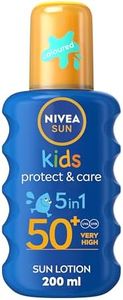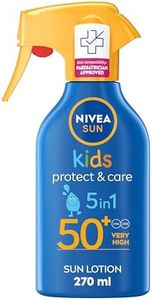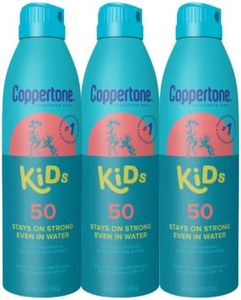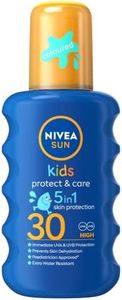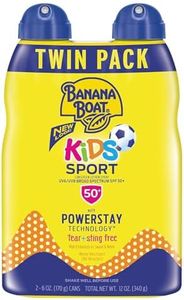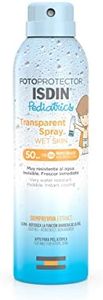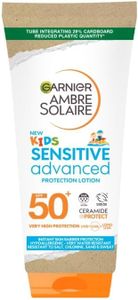We Use CookiesWe use cookies to enhance the security, performance,
functionality and for analytical and promotional activities. By continuing to browse this site you
are agreeing to our privacy policy
10 Best Kids Sunscreen Sprays
From leading brands and best sellers available on the web.Buying Guide for the Best Kids Sunscreen Sprays
Choosing the right sunscreen spray for kids is crucial to ensure their delicate skin is protected from harmful UV rays. Kids' skin is more sensitive and prone to sunburn, so it's important to select a product that offers effective protection while being gentle on their skin. Here are some key specifications to consider when picking the best sunscreen spray for your child.SPF (Sun Protection Factor)SPF indicates the level of protection the sunscreen offers against UVB rays, which are the main cause of sunburn. Higher SPF values provide more protection. For kids, it's generally recommended to use a sunscreen with at least SPF 30. If your child has very fair skin or will be spending extended periods in the sun, consider SPF 50 or higher. Always reapply sunscreen every two hours, or more often if swimming or sweating.
Broad Spectrum ProtectionBroad spectrum sunscreens protect against both UVA and UVB rays. UVA rays can prematurely age the skin, while UVB rays can burn it. Both types of rays can cause skin cancer. Ensure the sunscreen you choose is labeled as 'broad spectrum' to provide comprehensive protection for your child's skin.
Water ResistanceWater-resistant sunscreens are designed to stay effective longer when your child is swimming or sweating. They typically come in two categories: 40 minutes or 80 minutes of water resistance. Choose a water-resistant sunscreen if your child will be in and out of the water or playing sports. Remember to reapply after the specified time or after towel drying.
IngredientsCheck the ingredients list for any potential allergens or irritants, especially if your child has sensitive skin. Look for sunscreens with physical blockers like zinc oxide or titanium dioxide, which are less likely to cause irritation. Avoid products with fragrances, parabens, and oxybenzone, which can be harsh on young skin.
Application EaseSunscreen sprays can be easier to apply on wiggly kids compared to lotions. However, ensure you spray generously and evenly, and rub it in to ensure full coverage. Be cautious of inhalation when using sprays; it's best to apply them in a well-ventilated area and avoid spraying directly on the face. For facial application, spray the sunscreen into your hands first, then apply it to the face.
Hypoallergenic and Pediatrician-TestedFor added peace of mind, look for sunscreens that are labeled as hypoallergenic and pediatrician-tested. These products are formulated to minimize the risk of allergic reactions and have been tested for safety on children's skin. This is particularly important if your child has a history of skin sensitivities or allergies.



